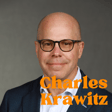
Shale Kaplan: MAI, Director at Kroll | Commercial Real Estate Appraisal
Shale is primarily focused on real estate consulting for corporate clients, private equity firms, hedge funds, and real estate investment trusts (publicly traded & non-traded). Shale has competency to complete large multi-property, multinational & global valuation engagements. In addition, Shale has experience in valuing the majority of property types, including multi-family, retail, office, medical office, industrial, land, and healthcare (senior living and hospitals).
Shale has also completed many engagements for financial reporting and tax purposes including valuations for ASC 805 purchase accounting, lease accounting (favorable/unfavorable and right of use analyses) ASC 842, ASC 360 impairment analyses, and other tax and financial accounting purposes.
Prior to Kroll, Shale worked at Stout Risius Ross. At Stout, Shale focused on valuation appraisals for estate planning, tax appeal, and financial reporting purposes. Prior to Stout, Shale worked at Marcus & Millichap where he helped clients with the disposition and acquisitions of commercial real estate.
Shale received his Bachelor of Arts in Economics from Michigan State University. He is a Certified General real estate appraiser in Michigan, Texas, Florida, Nebraska, Minnesota, Colorado, Ohio, Illinois, and Missouri. He is a Designated Member of the Appraisal Institute. Shale also holds a real estate broker’s license in the state of Illinois.



















